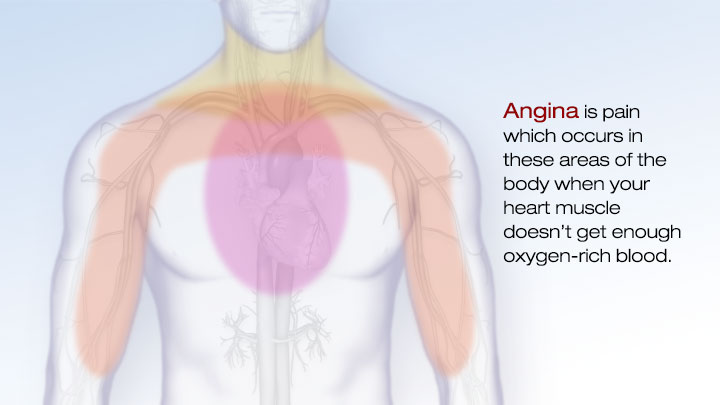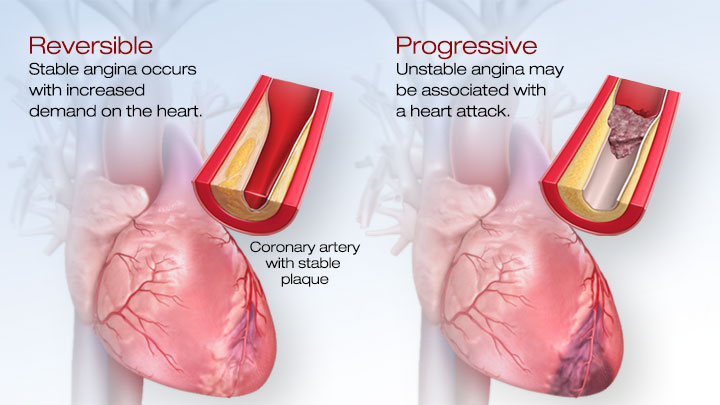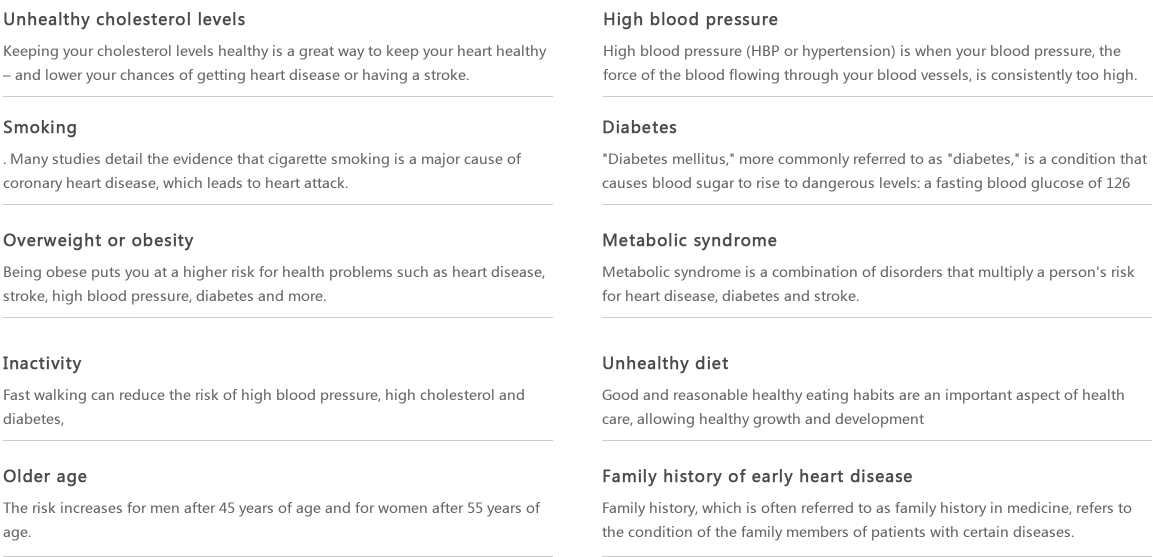胸痛中心建设
- 什么是胸痛
- 跟踪评估计划
什么是胸痛
What is chest pain
Why chest pain
Angina is chest pain or discomfort caused when your heart muscle doesn't get enough oxygen-rich blood. It may feel like pressure or squeezing in your chest. The discomfort also can occur in your shoulders, arms, neck, jaw, or back. Angina pain may even feel like indigestion.

But, angina is not a disease. It is a symptom of an underlying heart problem, usually coronary heart disease (CHD).There are many types of angina, including microvascular angina, Prinzmetal's angina, stable angina, unstable angina and variant angina. View an animation of angina.
This usually happens because one or more of the coronary arteries is narrowed or blocked, also called ischemia.
Angina can also be a symptom of coronary microvascular disease (MVD). This is heart disease that affects the heart’s smallest coronary arteries and is more likely to affect women than men. Coronary MVD also is called cardiac syndrome X and non-obstructive CHD. Learn more about angina in women.

Angina can also be a symptom of coronary microvascular disease (MVD). This is heart disease that affects the heart’s smallest coronary arteries and is more likely to affect women than men. Coronary MVD also is called cardiac syndrome X and non-obstructive CHD. Learn more about angina in women.
| Types of Angina | definition | symptom |
|---|---|---|
| Stable Angina / Angina Pectoris | Angina pectoris is the medical term for chest pain or discomfort due to coronary heart disease. It occurs when the heart muscle doesn't get as much blood as it needs. This usually happens because one or more of the heart's arteries is narrowed or blocked, also called ischemia.。 | Angina often occurs when the heart muscle itself needs more blood than it is getting, for example, during times of physical activity or strong emotions. Severely narrowed arteries may allow enough blood to reach the heart when the demand for oxygen is low, such as when you're sitting. |
| Unstable Angina | The most common cause is reduced blood flow to the heart muscle because the coronary arteries are narrowed by fatty buildups (atherosclerosis) which can rupture causing injury to the coronary blood vessel resulting in blood clotting which blocks the flow of blood to the heart muscle. | Chest pain or discomfort may include stress, tension or fullness Single or double arm, chin, neck, back or stomach pain or discomfort Shortness of breath, dizziness or dizziness, nausea, sweating |
| Variant (Prinzmetal) Angina |
Unlike typical angina – which is often triggered by exertion or emotional stress - Prinzmetal’s angina almost always occurs when a person is at rest, usually between midnight and early morning. These attacks can be very painful. | Usually occurs while resting and during the night or early morning hours Are usually severe Can be relieved by taking medication |
| Microvascular Angina | This type of angina, or chest pain, may be a symptom of coronary microvascular disease (MVD). Coronary MVD is heart disease that affects the heart’s smallest coronary artery blood vessels.. | Symptoms of microvascular angina: Angina that occurs in coronary MVD may differ from the typical angina that occurs in heart disease in that the chest pain usually lasts longer than 10 minutes, and it can last longer than 30 minutes. If you have been diagnosed with MVD, follow the directions from your healthcare provider regarding how to treat your symptoms and when to seek emergency assistance. |
了解胸痛的风险
Understand the risk of chest pain
Understand Your Risk for Angina
If you’re at risk for heart disease or coronary MVD, you’re also at risk for angina. The major risk factors for heart disease and coronary MVD include:

了解胸痛的诊断
Understand the diagnosis of chest pain
Diagnosis of Angina
All chest pain should be checked out by a healthcare provider. If you have chest pain, your doctor will want to find out whether it's angina and if it is, whether the angina is stable or unstable. If it's unstable, you may need emergency medical treatment to try to prevent a heart attack.
Your doctor will most likely perform a physical exam, ask about your symptoms, and ask about your risk factors for and your family history of heart disease and other cardiovascular conditions.


Talk to Your Doctor
Your doctor will probably ask you a series of questions to rule out the most critical or life-threatening possibilities. Think ahead so you can provide as much information as possible. Here are some questions you might be asked:
- How long have you had this condition?
- On a scale of 1 (mild) to 10 (critical), what is your level of discomfort?
- On a scale of 1 (mild) to 10 (critical), what is your level of discomfort?
- What relieves the discomfort?